
The film is a metaphor for the Cold War. It depicts two neighbouring nations: peace loving Fortuna and the not so peaceful land of the Steel City.
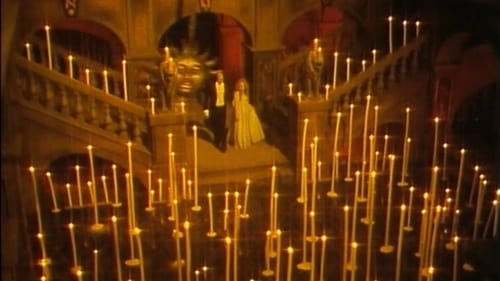
Old Courtier
Martin, a poor student, volunteers to go on a quest to find a cure for the princess Adriana, who is stricken with a strange illness. Unknown to Martin or anyone else, the princess is actually under the spell of the powerful magician Andlobrandini, who is preparing a rejuvenating elixir made from the blood of nine men's hearts.

lokaj

Fára Board Member
It is the 1920's. The good-looking hostess Věra demonstrates household robots to visitors of the Futurum exhibition. Young inventor Petr comes to her rescue when she tries to flee from two men wanting to take her away. Věra confesses that she has fled from home because her father, a factory owner, wanted to profitably marry her off. Petr is fascinated by the emancipated woman and shows her round his laboratory, where he plans to create a robot of his own - but one that would be far more advanced. Věra cuts herself on a broken test-tube and a drop of her blood gets in the solution. In the morning, they are taken aback to see Věra's double. This lucky chance has helped Petr create an artificial being, Miss Golem. She has a single motive for her actions: to take care of Věra and allow her to do only what is good for her.
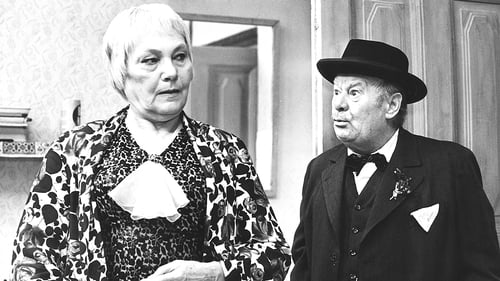
hasič

Jan Zika is the legendary hero of the communist resistance movement during World War II and leading functionary of the second underground Central Committee of the Communist Party of Czechoslovakia.
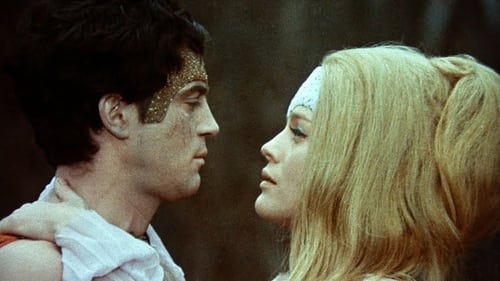
Drevorubec
Radúz, the son of a Magurian king, has lost his way hunting in the territory of the Tatra King Stojmír. He learns from his loyal servant Radovid the reason behind the two countries' conflict. When Radúz's mother Nyola married his father, the rejected wooer Stojmír married the evil Princess Runa. Runa out of jealousy continually incites hatred for Maguria. Radúz and Radovid have only just crossed the border when an army commanded by Runa detains them. The white deer that Radúz has killed belongs to the youngest of Stojmír's three daughters, the beautiful and delicate Mahulena.
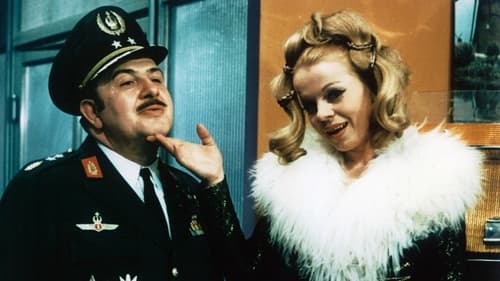
After a soldier cuts off the arm of king's cousin, king decides to deactivate the army. Of course, generals don't like it at all and they try to kill the king. The assassin should be artificial body in the shape of actress Evelina Keleti and with brain of psychotic serial killer Fany Stubová. They also manage to kill king's astrologer Stuart Hampl, who warns the king. Accidentally, Hampl's brain is implanted into assassin's body, actress Keleti is killed and chaos begins.

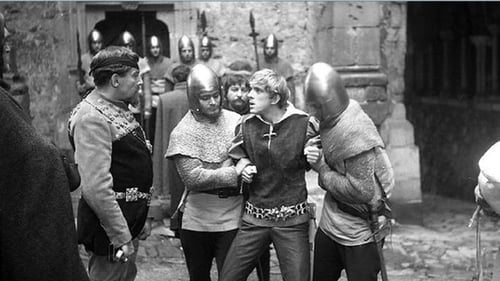
The young Prince Charles (Jaromír Hanzlík), the future King of his country Charles IV, is being educated at the French court in the company of his fiancée Blanche (Daniela Kolárová). One day he receives a summons from his father John of Luxembourg (Milos Kopecký) in Italy. He leaves for Italy accompanied by a deputation from Bohemia. On the way the prince's company fights a battle with armed Milanese against heavy odds. Thanks to Charles's perspicacity, the prince's almost naked soldiers win through. In Lucca in Italy Charles joins his father, and here he experiences an amorous adventure and escapes from the traps laid by the Italian rebels.

This historical film by Hynek Bočan touches upon the indecisiveness of the Czech nation, ready to bend the backbone in face of foreign rule. Situating the story at the close of the Thirty Year War enabled the depiction of the misery of the people that affects even an impoverished aristocratic milieu. Rudolf Hrušínský appears here in the role of an indecisive knight, persuaded for a long time and in vain to join the anti-Habsburg movement. The story does not only captivate through the depiction of manifold human characters, intrigues and sycophancy, but also through the circumstances ruling over the devastated farmstead, sunk in mud and crudeness. One of the best films with an updating tendency has come into being here, rightly being named along the such greats as Kladivo na čarodějnice (Witches' Hammer).

A day in the life of Arnošt, a soldier staying in Josefov. A sense of desperation permeates the environment as well as the mind of the protagonist. It is sunday, and saturday left just a hangover. Days go by, nothing changes. A metaphor for the political situation in the Czech lands at a time where depicting a soldier as a drunk was considered out of place to say the least.

Shortish forty-year old Ludvík Podzimek, lute and flute player in a Prague orchestra, is far from being an attractive man. He is nevertheless generally considered a great 'Don Juan'. Women take up with him out of a certain motherly compassion and Ludvík's tender heart does not allow him to split with any of them. His lovers thus accumulate and cause him numerous troubles.

státní sekretár Karl Hermann Frank
The assassination of Heydrich in Prague during WWII.

At the end of May 1918, released prisoners return to the Rumburk garrison from Russian captivity, hoping that the war is over for them. The only thing they want is to get their withheld ...

While a woman is in the hospital preparing to deliver her child, her husband has all day to reflect upon his wife and their relationship. As he tends to his job as a television repairman, Slavek fondly remembers how he first met Ivana and the days they spent getting to know one another. Slavek also grows increasingly aware of the environment that surrounds him and questions the society his new child will be entering. Loaded with a repeated plea for social change, this is the first feature from Czech writer/director Jaromil Jires.
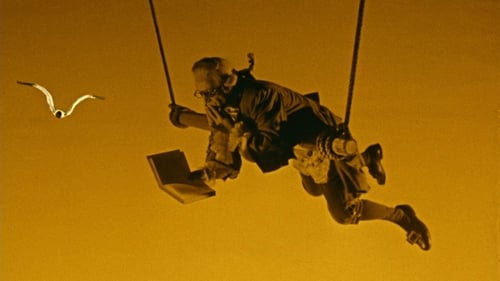
Barbicane, předseda dělového klubu
The 20th century's first man lands on the moon and discovers - that Baron Munchausen has already beaten him to it, along with Cyrano and characters from Jules Verne's lunar-landing novel. The Baron spirits the young cosmonaut by horse-drawn ship back to an ancient "Earth", where they insult a sultan, rescue a princess, fall in love with the princess, and then as a trio have further experiences in a world of pastel colors, ornate dreamlike settings, and the inevitable angry disrupters of peacefulness and love.
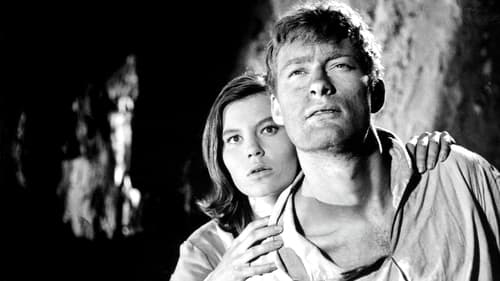
A small town is one day visited by a priest who is there on a secret mission. He is a member of the Inquisition sent to investigate the activities of a local miller. The miller and his son are the descendants of an old family whose ancestral home burned down a century ago, but was rebuilt from scratch. The miller inherited much of his knowledge about the land, water, and a building's stability from generations of family experience. His reputation for finding water and predicting when a structure might collapse have come to the attention of the Inquisition -surely he must be in league with the Devil.

Kosík's companion

Healer
After the battle of Sudoměř the Hussite teaching spreads through the whole country and people start leaving their homes to help build the fortification of Tábor. Prague citizens request help against the army of Zikmund. The Hussite army with Jan Žižka in the lead make their way towards Prague. They fortify themselves on the mountain Vítkov and engage in a bloody battle with Zikmund’s huge army.

Good-natured and garrulous, Švejk becomes the Austrian army's most loyal Czech soldier when he is called up on the outbreak of World War I -- although his bumbling attempts to get to the front serve only to prevent him from reaching it. Playing cards and getting drunk, he uses all his cunning and genial subterfuge to deal with the police, clergy, and officers who chivy him toward battle.

pražský konšel
Jan Hus is a 1954 Czechoslovak film directed by Otakar Vávra. It is the first part of the "Hussite Revolutionary Trilogy", one of the most famous works of the Czechoslovak director, completed with Jan Žižka (1955) and Proti všem (Against All Odds, 1957).

Knez
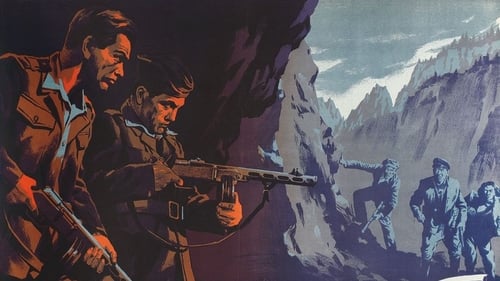
priest
Film shows the struggle of the Czechoslovak armed forces against groups of Ukrainian Insurgent Army (UPA) under command Burlak, who tried to pass through the territory of Slovakia.

The story of the great strike of the workers building the Cervena Skala - Mergecany railway line

mnich
Year of the Revolution 1848

Grammar school teacher Bláha hurts himself in pursuit of a red lizard, and is lying unconscious in the lonely house of Santrucek family. The postman, who found Bláha's coat and hat in the water, announces to everyone in town that the professor has drowned. But, the venerable citizens are at that moment more interested in the theatre group with the beautiful guest actress Eva Gazdová. They demand a change of repertoire and manage to persuade the theatre manager to have the group play the musical comedy The Red Lizard instead of an established play.

Náhlík

Prague, the beginning of the 17th century. Rozina falls in love with Italian glass worker Nikolo, but after returning home, she gets a message that will never come to Prague. She falls for the promise of an older man to marry her, but when Nikolo does return, the tragic fate of Rozina is sealed.

Venice Film Festival 1939

dílovedoucí

Robert

asistent kameramana


















